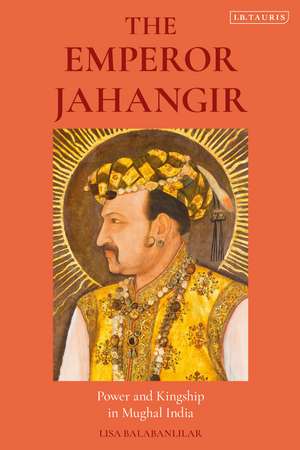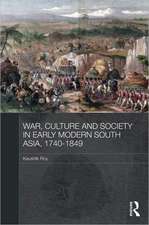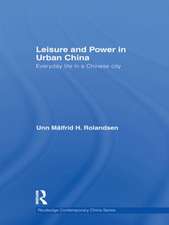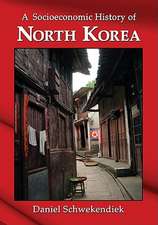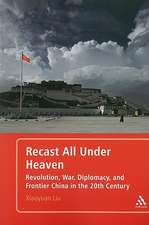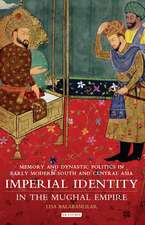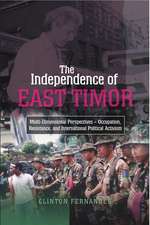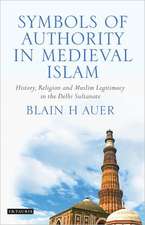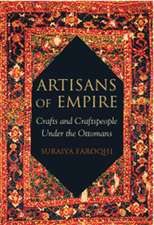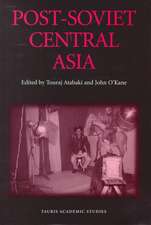The Emperor Jahangir: Power and Kingship in Mughal India
Autor Lisa Balabanlilaren Limba Engleză Paperback – 19 mai 2021
| Toate formatele și edițiile | Preț | Express |
|---|---|---|
| Paperback (1) | 153.96 lei 6-8 săpt. | |
| Bloomsbury Publishing – 19 mai 2021 | 153.96 lei 6-8 săpt. | |
| Hardback (1) | 598.99 lei 6-8 săpt. | |
| Bloomsbury Publishing – 15 apr 2020 | 598.99 lei 6-8 săpt. |
Preț: 153.96 lei
Preț vechi: 166.74 lei
-8% Nou
Puncte Express: 231
Preț estimativ în valută:
29.47€ • 32.02$ • 24.77£
29.47€ • 32.02$ • 24.77£
Carte tipărită la comandă
Livrare economică 21 aprilie-05 mai
Preluare comenzi: 021 569.72.76
Specificații
ISBN-13: 9780755640553
ISBN-10: 0755640551
Pagini: 272
Dimensiuni: 156 x 234 x 19 mm
Greutate: 0.38 kg
Editura: Bloomsbury Publishing
Colecția I.B.Tauris
Locul publicării:London, United Kingdom
ISBN-10: 0755640551
Pagini: 272
Dimensiuni: 156 x 234 x 19 mm
Greutate: 0.38 kg
Editura: Bloomsbury Publishing
Colecția I.B.Tauris
Locul publicării:London, United Kingdom
Notă biografică
Lisa Balabanlilar is Associate Professor of History and Director of Undergraduate Studies at Rice University, Texas, USA.
Cuprins
Introduction,Section One: The Prince (1569-1605) Chapter 1: The Timurid-Mughal Dynasty Birth of a Prince Childhood Chapter 2: Insurrection The Counter Court in AllahabadResolution Section Two: Becoming King (1605-1608) Chapter 3: Consolidating KingshipLegitimate RuleHis Father's FootstepsReligious PoliciesThe Twelve Decrees and the Chain of JusticeChapter 4: The JahangirnamaThe Vaq'iat and the Jahangirnama Chapter: 5 Khusraw's Revolt The Aftermath of Princely Revolt Babur's Kabul Section Three: Relationships at the Royal Court of Jahangir Chapter 6: In the Proximity of Kings The Nature of Authority Gifts, Awards and Honors Viewings and Interactions Punishment and ClemencyChapter 7: Divine Kingship and the Majalis-i Jahangiri Chapter 8: Marriage and the Mughal Prince Salim: Love and MarriageWomen and Power Section Four: International Relationships Chapter 9: International Diplomacy Europe Ottomans and UzbeksThe Safavids Chapter 10: Military Campaigns The Damned Rana of Mewar Kangra The Deccan and Malik Ambar Section Five: The Peripatetic King Chapter 11: Jahangir and the South Asian Landscape The Native Son Fruit and the Homeland The Naturalist A King of the EnlightenmentChapter 12: The Sacred Landscape Charity and Pilgrimage Ahmed Sirhindi Hindu Piety and DevotionChapter 13: The HuntChapter 14: Intoxicants Section Five: The Arts Chapter 15: Poetry at the Mughal CourtChapter 16: In the Mughal Garden ArchitectureChapter 17: Painting for the Emperor Naturalism Portraiture Allegorical Paintings Section Six: Kingship in Crisis (1619-1627) Chapter 18: A Journey to the Northern PassesChapter 19: A Dangerous WomanChapter 20: A Question of Loyalty Chapter 21: A Secretary's Tale of Filial Revolt Muhammad Hadi Unresolved ConflictsThe Rebellion of Mahabat KhanConclusion: The Death of the King The Queen's LegacyThe Emperor's Legacy A Note About Sources Bibliography
Recenzii
Jahangir, the fourth Mughal emperor of India, who ruled from 1605 to 1627, has long deserved an up-to-date, scholarly biography in English. The emperor's political struggles, opium addiction and love for nature and art come to life in this sensitive study by Lisa Balabanlilar, a Rice University specialist on early modern Asian history.
This is a new and welcome study of the Mughal emperor Jahangir who until recently stood in the shadow of the more famous Mughal dynasts Babur, Akbar and Aurangzeb. Through Jahangir's autobiography Lisa Balabanlilar unfolds the emperor's life and kingship and takes a holistic view by considering not only politics but also the social, cultural and religious aspects of his rule. It is the special merit of the fluently written book to draw attention to Jahangir as the first Mughal emperor being born in India with which he acquainted himself through continuous journeys. This, as the author argues, led to his intellectual and emotional response to the landscape, nature and people of his territories, he viewed 'Hindustan as a paradisiacal land of marvels and wonders.
The genre of royal biography has fallen into relative disuse among professional historians over the last few decades. In this evocative book, Balabanlilar provides us with a richly textured account of the life of the fourth Mughal emperor, Jahangir, as revealed in contemporary sources from his own time in the late sixteenth and early seventeenth centuries - including his own royal memoir, the Jahangirnama. The author narrates with deep empathy the life and preoccupations of an early modern Mughal Emperor. Building on the insights of the new social and cultural history of Central and South Asia, Balabanlilar also outlines for us the norms, values, and tastes of a Mughal emperor and his court in the early seventeenth century. The result is a royal biography that is also a rich socio-cultural history of an entire court at a distinct historical moment.
Balabanlilar paints a large and vivid canvas, drawing upon current scholarship as well as Jahangir's own writings and other primary sources to build her portrait of the emperor and his court... Readable, balanced, and comprehensive, The Emperor Jahangir is a welcome addition to the library of recent publications on Mughal history.
This is a new and welcome study of the Mughal emperor Jahangir who until recently stood in the shadow of the more famous Mughal dynasts Babur, Akbar and Aurangzeb. Through Jahangir's autobiography Lisa Balabanlilar unfolds the emperor's life and kingship and takes a holistic view by considering not only politics but also the social, cultural and religious aspects of his rule. It is the special merit of the fluently written book to draw attention to Jahangir as the first Mughal emperor being born in India with which he acquainted himself through continuous journeys. This, as the author argues, led to his intellectual and emotional response to the landscape, nature and people of his territories, he viewed 'Hindustan as a paradisiacal land of marvels and wonders.
The genre of royal biography has fallen into relative disuse among professional historians over the last few decades. In this evocative book, Balabanlilar provides us with a richly textured account of the life of the fourth Mughal emperor, Jahangir, as revealed in contemporary sources from his own time in the late sixteenth and early seventeenth centuries - including his own royal memoir, the Jahangirnama. The author narrates with deep empathy the life and preoccupations of an early modern Mughal Emperor. Building on the insights of the new social and cultural history of Central and South Asia, Balabanlilar also outlines for us the norms, values, and tastes of a Mughal emperor and his court in the early seventeenth century. The result is a royal biography that is also a rich socio-cultural history of an entire court at a distinct historical moment.
Balabanlilar paints a large and vivid canvas, drawing upon current scholarship as well as Jahangir's own writings and other primary sources to build her portrait of the emperor and his court... Readable, balanced, and comprehensive, The Emperor Jahangir is a welcome addition to the library of recent publications on Mughal history.
